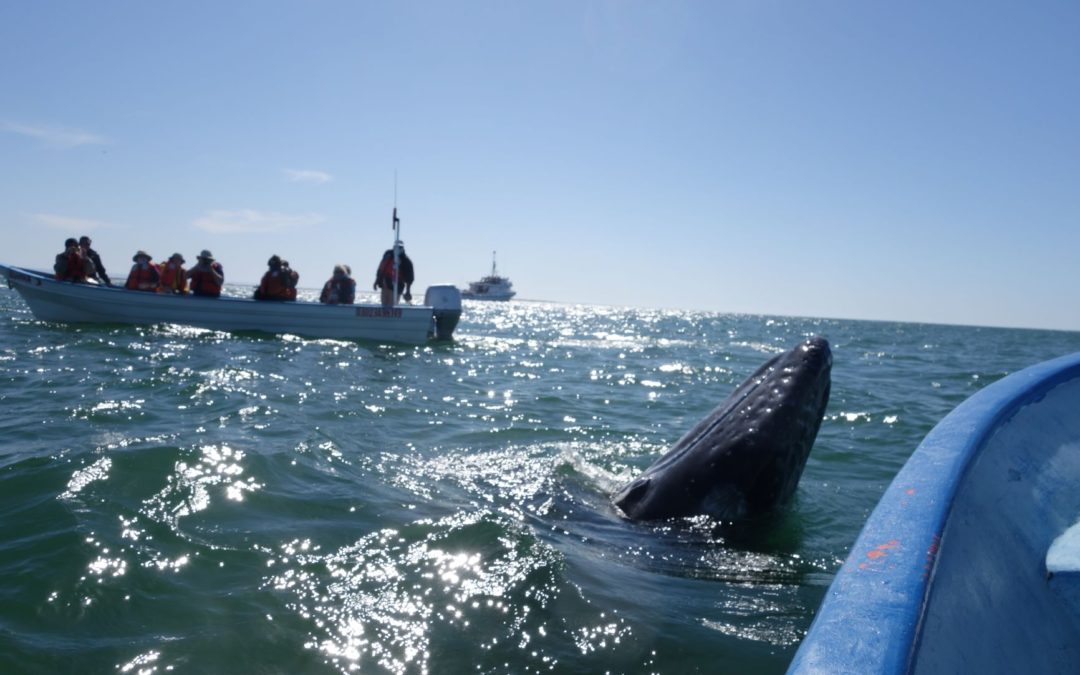On June 8th, World Oceans Day, the conservation spotlight turns to the oceans. We hear stories and see new data about the threats to oceans. There is no question that the oceans and marine life are under threat. Of course, these risks to ocean habitats and species also undermine human wellbeing since we are dependent on the ocean. For example, oceans are estimated to produce as much as 50-80 percent of the world’s oxygen and fish are a source of protein for 3 billion people around the world. Scientists and conservationists have cataloged the threats and outlined clear steps that we must take to stop and reverse the damage. But, I believe that to really create the will to implement these steps, we need to connect with the joy and happiness the oceans give us.
When I think about the happiness and wellbeing the ocean provides, I think of Laguna San Ignacio (LSI) in Baja Mexico. My experience with the community and the whales in LSI was even a catalyst for founding OneNature. Watching grey whale mothers and calves approach my small boat, seemingly as interested in us as we were in them, was one of the most profound experiences of my life. The community in LSI values whales and other wildlife and cares deeply for the land and water. They want to conserve whales and be able to share this intimate whale experience with the world. In fact, the community cares so much about their community wellbeing and whale conservation that they galvanized an international campaign to protect the lagoon for gray whale calving and nursing over 25 years ago. Today the community and the whales face new threats. The long-term social, economic and environmental sustainability of the community, and the wildlife and wild places around the community are at risk. The COVID-19 pandemic’s health and economic crisis impacted this community that depends on wildlife-based eco-tourism along with fishing income. Climate change and a noisy ocean filled with fast ships have made this refuge for gray whale mothers and calves more important than ever before. The community’s fate and that of the whales are tied together. New data and new models are needed to help communities like this one evaluate how to move forward in ways that maximize the wellbeing of all.
We developed the Wild Happiness survey and community process (in partnership with the Happiness Alliance), with communities like this one in mind. We can find out what was working in the community around whale and other species conservation and how it links to broader community wellbeing. We can give them the data and other tools they can use to make the best decisions and implement work that they feel would increase their own wellbeing and that of the species they steward for the rest of the world.
Special days like World Oceans Day are a great time to remember why we love the oceans, begin to better understand the many values that whales and other species have to our wellbeing, and become even more inspired to protect them.
